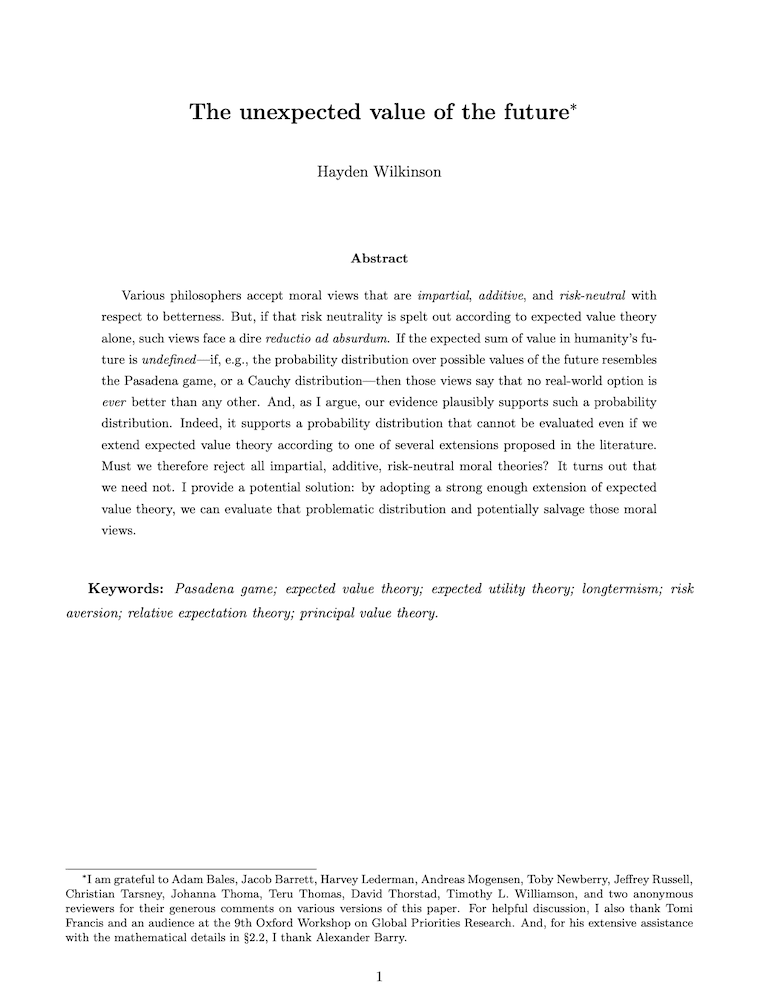The unexpected value of the future
Hayden Wilkinson (Global Priorities Institute, University of Oxford)
GPI Working Paper No. 17-2022, forthcoming in Ergo
Various philosophers accept moral views that are impartial, additive, and risk-neutral with respect to betterness. But, if that risk neutrality is spelt out according to expected value theory alone, such views face a dire reductio ad absurdum. If the expected sum of value in humanity’s future is undefined—if, e.g., the probability distribution over possible values of the future resembles the Pasadena game, or a Cauchy distribution—then those views say that no real-world option is ever better than any other. And, as I argue, our evidence plausibly supports such a probability distribution. Indeed, it supports a probability distribution that cannot be evaluated even if we extend expected value theory according to one of several extensions proposed in the literature. Must we therefore reject all impartial, additive, risk-neutral moral theories? It turns out that we need not. I provide a potential solution: by adopting a strong enough extension of expected value theory, we can evaluate that problematic distribution and potentially salvage those moral views.
Other working papers
Welfare and felt duration – Andreas Mogensen (Global Priorities Institute, University of Oxford)
How should we understand the duration of a pleasant or unpleasant sensation, insofar as its duration modulates how good or bad the experience is overall? Given that we seem able to distinguish between subjective and objective duration and that how well or badly someone’s life goes is naturally thought of as something to be assessed from her own perspective, it seems intuitive that it is subjective duration that modulates how good or bad an experience is from the perspective of an individual’s welfare. …
Choosing the future: Markets, ethics and rapprochement in social discounting – Antony Millner (University of California, Santa Barbara) and Geoffrey Heal (Columbia University)
This paper provides a critical review of the literature on choosing social discount rates (SDRs) for public cost-benefit analysis. We discuss two dominant approaches, the first based on market prices, and the second based on intertemporal ethics. While both methods have attractive features, neither is immune to criticism. …
Strong longtermism and the challenge from anti-aggregative moral views – Karri Heikkinen (University College London)
Greaves and MacAskill (2019) argue for strong longtermism, according to which, in a wide class of decision situations, the option that is ex ante best, and the one we ex ante ought to choose, is the option that makes the very long-run future go best. One important aspect of their argument is the claim that strong longtermism is compatible with a wide range of ethical assumptions, including plausible non-consequentialist views. In this essay, I challenge this claim…

